March is Women’s History Month in the U.S. This year’s theme, “Valiant Women of the Vote,” honors the upcoming 100th anniversary of the 19th Amendment, which gave American women the right to vote.
Howe Library’s newest acquisitions feature books on women’s history and women’s experiences. Find these titles and others on the New Books shelf, near the library’s front entrance.
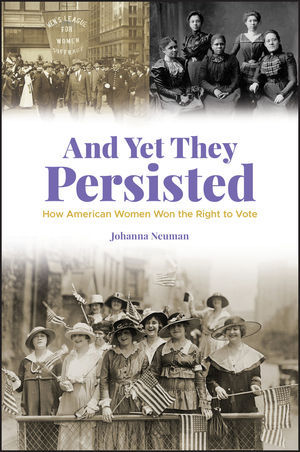 And Yet They Persisted: How American Women Won the Right to Vote
And Yet They Persisted: How American Women Won the Right to Vote
by Johanna Neuman
Most suffrage histories begin in 1848, when Elizabeth Cady Stanton first publicly demanded the right to vote at the Women’s Rights Convention in Seneca Falls, NY. And they end in 1920, when Tennessee became the 36th state to ratify the 19th Amendment, removing sexual barriers to the vote. And Yet They Persisted traces agitation for the vote over two centuries, from the revolutionary era to the civil rights era, excavating one of the greatest struggles for social change in this country and restoring African American women and other women of color to its telling.
In this sweeping history, author Johanna Neuman demonstrates that American women defeated the male patriarchy only after they convinced men that it was in their interests to share political power.
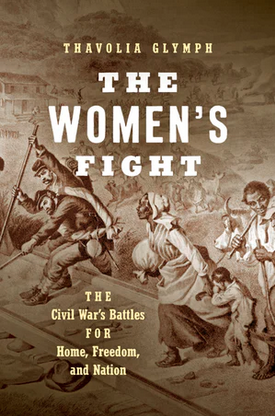 The Women's Fight: The Civil War's Battles for Home, Freedom, and Nation
The Women's Fight: The Civil War's Battles for Home, Freedom, and Nation
by Thavolia Glymph
Historians of the Civil War often speak of “wars within a war”—the military fight, wartime struggles on the home front, and the political and moral battle to preserve the Union and end slavery. In this broadly conceived book, Thavolia Glymph provides a comprehensive new history of women's roles and lives in the Civil War—North and South, white and black, slave and free—showing how women were essentially and fully engaged in all three arenas.
Glymph focuses on the ideas and ideologies that drove women's actions, allegiances, and politics. We encounter women as they stood their ground, moved into each other's territory, sought and found common ground, and fought for vastly different principles.
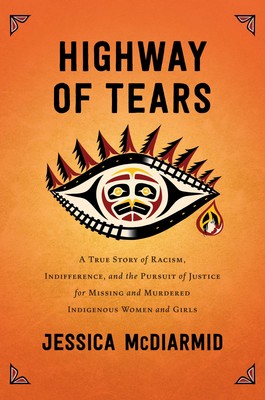 Highway of Tears: A True Story of Racism, Indifference, and the Pursuit of Justice for Missing and Murdered Indigenous Women and Girls
Highway of Tears: A True Story of Racism, Indifference, and the Pursuit of Justice for Missing and Murdered Indigenous Women and Girls
by Jessica McDiarmid
For decades, Indigenous women and girls have gone missing or been found murdered along an isolated stretch of highway in northwestern British Columbia. The corridor is known as the Highway of Tears, and it has come to symbolize a national crisis.
Journalist Jessica McDiarmid meticulously investigates the devastating effect these tragedies have had on the families of the victims and their communities, and how systemic racism and indifference have created a climate in which Indigenous women and girls are overpoliced yet underprotected. McDiarmid interviews those closest to the victims—mothers and fathers, siblings and friends—and provides an intimate firsthand account of their loss and unflagging fight for justice. She also links these cases to others across Canada—now estimated to number up to four thousand—contextualizing them within a broader examination of the undervaluing of Indigenous lives in the country.
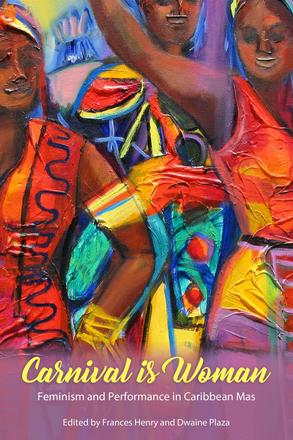 Carnival Is Woman: Feminism and Performance in Caribbean Mas
Carnival Is Woman: Feminism and Performance in Caribbean Mas
edited by Frances Henry and Dwaine Plaza
Women are performing an ever-growing role in Caribbean Carnival. Through a feminist perspective, this volume examines the presence of women in contemporary Carnival by demonstrating not only their strength in numbers, but also the ways in which women participate in the event.
While decried by traditionalists, the bikinis, beads, and feathers of “pretty mas’” convey both a newly found empowerment as a gendered resistance to oppression from men. Through display of their bodies, contemporary women in Carnival express a form of female resistance. Intent on enjoying and expressing themselves, they seem invigorated by their place in the economy, as well as their sexuality, defying the moral controls imposed on them.
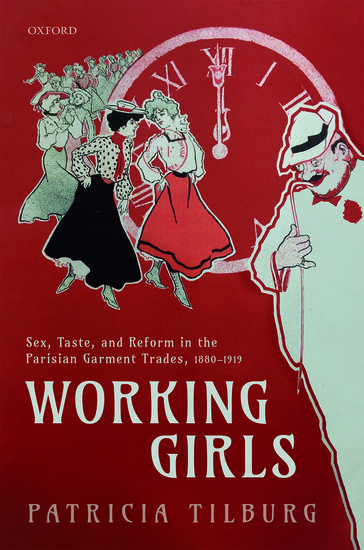 Working Girls: Sex, Taste, and Reform in the Parisian Garment Trades, 1880-1919
Working Girls: Sex, Taste, and Reform in the Parisian Garment Trades, 1880-1919
by Patricia A. Tilburg
As the twentieth century dawned and France entered an era of extraordinary labor activism and industrial competition, an insistently romantic vision of the Parisian garment worker was deployed by politicians, reformers, and artists to manage anxieties about economic and social change. Nostalgia about a certain kind of France was written onto the bodies of the capital's couture workers throughout French pop culture from the 1880s to the 1930s. And the midinettes—as these women were called—were written onto the geography of Paris itself, by way of festivals, monuments, historic preservation, and guide books. The idealized working Parisienne stood in for, at once, the superiority of French taste and craft, and the political (and sexual) subordination of French women and labour. But she was also the public face of more than 80,000 real working women whose demands for better labour conditions were inflected, distorted, and, in some cases, amplified by this ubiquitous Romantic type in the decades straddling World War I.
